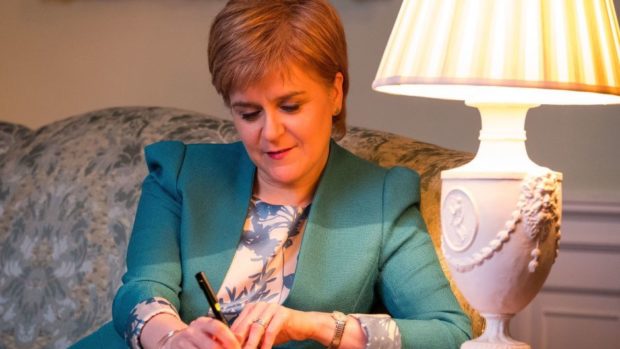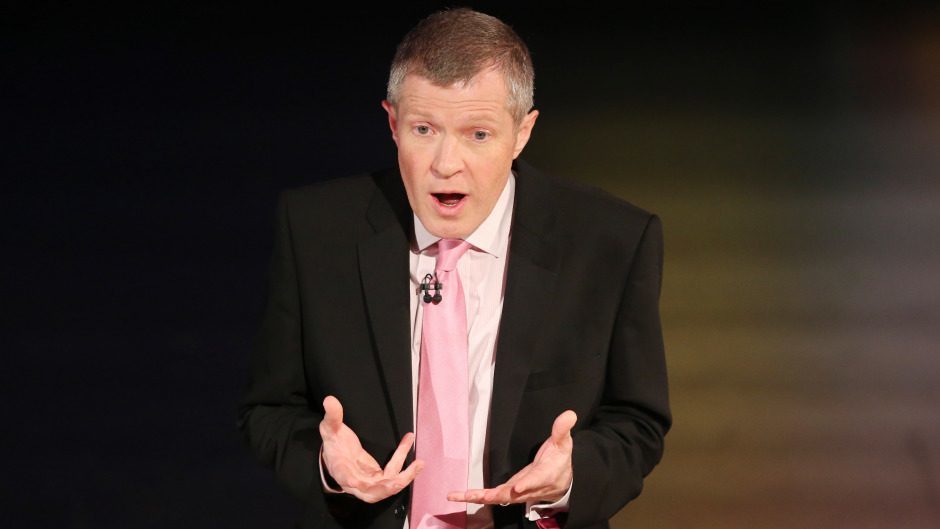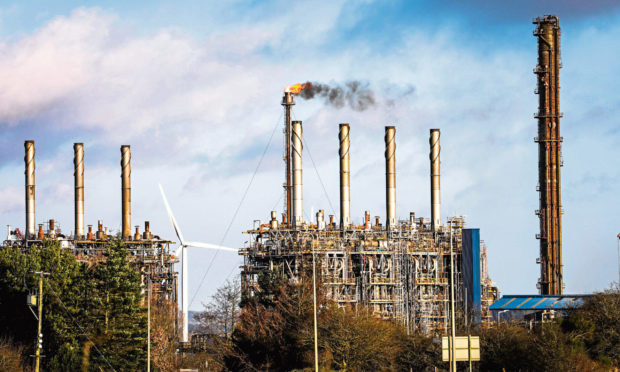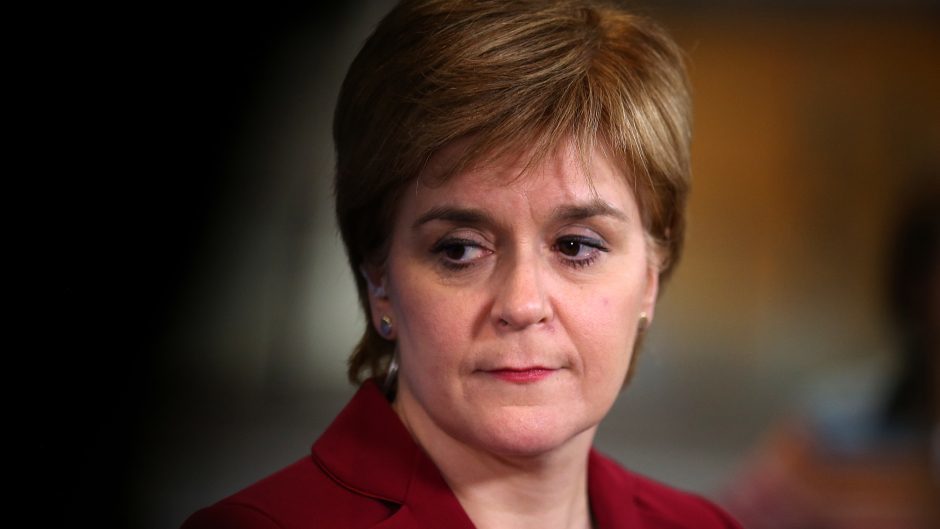Nicola Sturgeon’s new legislative agenda contains the lowest number of planned Bills under any SNP government since devolution.
The first minister has framed her programme for government as a blueprint to a “stronger, more resilient and sustainable economy” that will create good-quality green jobs as the country fights back from coronavirus.
But as legislative agendas go, Tuesday’s announcement included a remarkably small number of new Bills to be introduced before the end of parliament.
This year’s programme includes just four: the St Andrews University (Degrees in Medicine and Dentistry), Budget, Domestic Abuse and UNCRC (Incorporation) Bills.
It is a significant reduction from the 16 new Bills planned by Ms Sturgeon in 2017-18 or the same number recorded by her predecessor, Alex Salmond, in 2011-12.
The closest in any programme for government under the SNP is 2015-16, the period leading up to the 2016 Scottish Parliament election, where just eight Bills were planned.
Ms Sturgeon will fight another election next year but the Scottish Parliament has also been forced to deal with a number of challenges, including emergency legislation to deal with the coronavirus, social distancing at parliament and financial pressures.
The Scottish Government was forced to drop legislative work in April as the Covid-19 pandemic worsened, including an expected update to the Scottish Government’s climate change plan and reforms to the Gender Recognition Act.
The first minister had pledged to take a “radical” approach to policy-making to achieve her ambitions for this year, and opposition parties had no shortage of ideas for what she should include.
Some of the plans included appear to have been borrowed from areas pursued by her political rivals in the past, while suggestions put forward by opposition leaders in the run up to the announcement appears to have been ignored.
The Scottish Lib Dems had put at the top of their wishlist a u-turn on plans to delay the rollout of a minimum entitlement to 30 hours of free childcare and specific support for areas forced back into lockdown by localised coronavirus outbreaks.
The party also called for an “immediate, future-focused inquiry” into the Scottish Government’s handling of the pandemic, and testing for international students coming to study in Scotland. They got none of that.
Party leader Willie Rennie hit out at the SNP for giving the inclusion of the independence referendum draft bill the “loudest cheer” of the day, while attacking the first minister’s record on delivering promises.
“It’s the got done list that’s the problem, it’s always so much shorter,” he said.
The Scottish Greens said the legislative agenda announced by the first minister fails to respond to the climate emergency “with the necessary urgency and scale”.
The party have campaigned for a green jobs fund, as well as a package of measures to support tenants in the private rented sector, and to end homelessness and fuel poverty.
The Greens acknowledged the first minister’s statement “includes modest moves on both issues” but said it lacks the “scale of investment needed”.
“If a Green jobs fund is to have an impact, it must urgently benefit those communities that are most in need of a just transition,” said Scottish Greens parliamentary co-leader Alison Johnstone.
“Scottish Greens have worked closely with the communities around the Mossmoran gas plant and the Hunterston nuclear plant, campaigning for a sustainable future for those communities. They need this support as soon as possible.”
Meanwhile, the Scottish Conservatives claimed the measures announced to mitigate the worst effects of coronavirus “lack urgency and remain insufficient to the scale of the task in hand”.
The party has called for fresh consideration to be given to a hardship fund for firms hit by localised lockdowns, a rollback of business rates evaluations and a commitment not to punish firms for “Covid-proofing” their properties.
Earlier this week Scottish Labour called on the first minister to tackle the “ticking timebomb” of child poverty, a situation Ms Sturgeon hopes will be improved by incorporating the United Nations Convention on the Rights of the Child into Scots Law.
She also committed to taking “the first step on the road to a National Care Service“, something Labour has been campaigning for since 2010. While party leader Richard Leonard welcomed the move, he warned time is “running out”.
The Federation of Small Businesses praised Nicola Sturgeon for putting jobs “at the top of her government’s agenda” but warned few of the measures will help businesses overnight and new short and medium-term plans may be needed.
Announcing the new legislative agenda at the Scottish Parliament, the first minister insisted her government would prioritise work to suppress coronavirus – building on its commitment to Covid-19 testing, contact tracing, and surveillance.
“The Covid-19 pandemic continues to have a profound impact on our health and wellbeing, on business and the economy – indeed, on our whole way of life. That is true here in Scotland, and across the globe,” Ms Sturgeon said.
“This programme is clear that suppressing Covid is our most immediate priority – and it will remain so for some time. However, it also makes clear that we will not simply hunker down and wait for the storm to pass.
“This programme for government sets out plans for a stronger, more resilient and sustainable economy – with a laser focus on creating new, good, green jobs.
“It guarantees opportunities for young people – and refuses to accept that their generation will carry the economic scars of Covid into adulthood.
“It sets out plans to strengthen and reform our public services, including our NHS. And it takes the first step on the road to a National Care Service.
“It promotes equality and wellbeing, with decisive action to combat child poverty. At its heart is the new, game-changing Scottish Child Payment.
“We must treat the Covid-19 challenge not as a brake on our ambitions but as an accelerant – helping us shape a stronger, greener, fairer future.”




